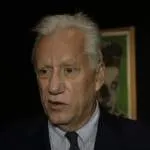(Daily Caller) Hillary Clinton and her powerful media affiliates seem to have co-opted the title of my book, “The Weaponization of Loneliness,” for the purpose of repackaging their propagandistic narrative against Trump voters and freedom of speech.
In her recent conversation with Rachel Maddow, Clinton spoke of “the weaponization of loneliness” to vilify those who disagree with her, portraying them as villains responsible for the crisis of America’s polarization and loneliness epidemic. The springboard for that interview was Clinton’s recent 3500-word essay in the Atlantic,headlined “The Weaponization of Loneliness.”
Most of Clinton’s interview with Maddow was a giddy chit chat over the latest rollout of indictments against President Trump. Clinton interjected the term “weaponization of loneliness” to blame her usual suspects of deliberately sowing all of the division and distrust America is experiencing. Her article is a cataloged enemies list that includes anyone skeptical of the handling of the 2020 elections and anyone who doesn’t blindly trust our institutions and government.
She also uses smears like “alt-right” and “conspiracy theorist.” As I’ve written, such polarizing name-calling has always been a staple of those who want to shut down conversation, isolate those who disagree and enforce compliance with increasingly bizarre demands. By relying so heavily on demonization rather than substantive analysis of America’s current crisis of isolation, Clinton herself is practicing the weaponization of loneliness on an amplified scale.
The Actual Thesis
“The Weaponization of Loneliness” represents my thesis which was decades in the making. The resulting book is a multi-faceted deep dive into the history, the science and the culture behind the phenomenon of social isolation as a political weapon. There is a process by which we go down that rabbit hole. It’s urgent for Americans to become conscious of that process, to become far more aware of how vulnerable we are to having our fears of ostracism exploited by bad actors. We are losing our freedom because of that fear.
Ponder how so many people are manipulated into joining dangerous cults. Also consider the phenomenon of Stockholm syndrome, whereby the isolated captive bonds with the captor out of a sense of dependency and despair.
How do such things happen? First, human beings have a primal terror of social rejection and a corresponding urge to conform to the demands of authority. Anybody who seeks power — whether a gaslighting partner, a toxic boss, a cult leader or a totalitarian dictator — can exploit this fear to achieve their goals.
There is a “machinery of loneliness” operating in our society that isolates us and destabilizes our relationships. The “machine’s” three main components are identity politics, political correctness and mob agitation.
Identity politics serves to erase us as unique individuals by assigning us group identities as either oppressor or victim. Political correctness induces us into self-censorship by threatening us with ostracism. Mobs can take different forms, but they enforce all of the above. Other components include propaganda, political censorship, the criminalization of comedy, snitch culture and much more. Demonizing labels (such as “bigot!” “anti-vaxxer!” “transphobe!”) along with political censorship play a huge role in stoking that terror.
The tyrant’s big prize in this game is to control the private sphere of life, our web of relationships of family, friends, faith and community. Tyrants have always targeted that sphere because that’s where people get their inner strength. It’s rich with knowledge, conversations, ideas and influences. If that sphere is captured, we become atomized, a condition leading to our demoralization and a loss of strength to resist tyranny.
These methods and goals are not new. As a student of totalitarian systems, I noticed how social isolation was critical to all tyrannical rule through modern history. A few examples are the Jacobin mobs of the French Revolution, the brutal war on private life in Soviet Russia, the Nazi’s brutal regime of identity politics (dubbed “racial hygiene”) and Mao Zedong’s Cultural Revolution in China whereby mobs of Red Guard youth inflicted violent struggle sessions on any perceived political enemy.
All of the above point to a process of the weaponization of loneliness. By contrast, Clinton uses the term simply to demonize her political opponents. If you disagree with her, you are “sowing dissension.”
Clinton often complains that people don’t trust the government enough. Seriously. But government policies over the past many decades have actually cultivated isolation by encouraging government dependency, contributing to family breakdown and undermining free speech and freedom of association, among other ills.
The COVID mandates literally enforced our isolation and deceived us into thinking it would only last a couple of weeks, not years. How can reasonable people trust a government that forces them to choose between an experimental injection or their livelihood? Or that brutally separates them from dying loved ones? Or that instructs them to snitch on their neighbors? Yet Clinton is allied with all such policies and demands trust.
All the tactics of the weaponization of loneliness are right there in Clinton’s Atlantic article and Maddow interview: the psychological projection, the use of a huge media monopoly to enforce a narrative, the constant deception and the claim that free speech should be suppressed under the guise of protecting us from “misinformation.”






